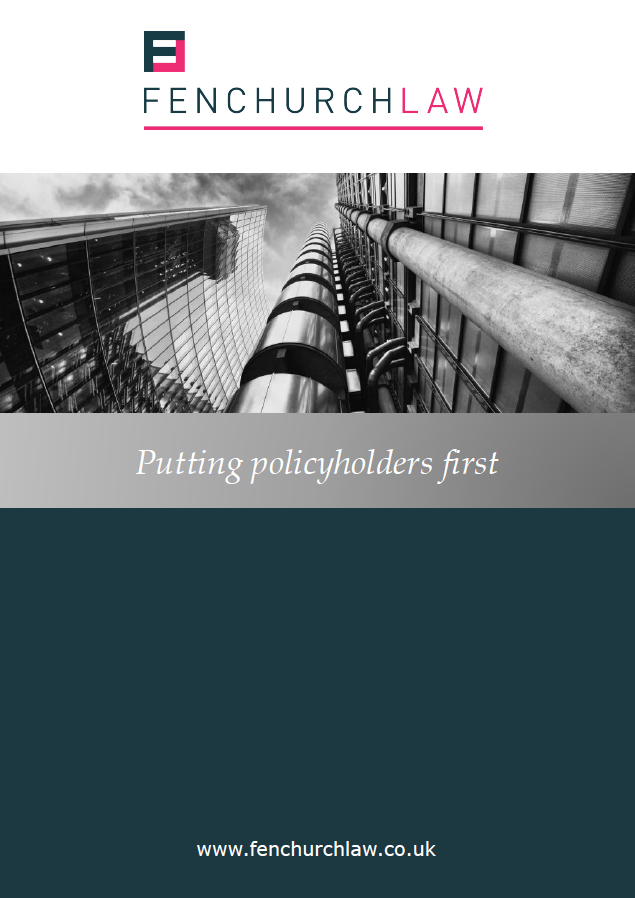
Peel Port Shareholding Finance Company Ltd – v – Dornoch Ltd
Can a Claimant obtain an order for pre-action disclosure against a solvent insured?
The Claimant, Peel Port Shareholder Finance Company Ltd (‘Peel Port’), suffered a fire at its premises at Sheerness Docks, Kent, on 14 January 2013. Its case was that the damage was caused by the activities of ‘European Active Projects Ltd’ (‘EAPL’).
Peel Port claimed that EAPL had no defence to the claim, and that judgment would be awarded in its favour for sums exceeding £1m. Further, it claimed that EAPL would be unable to meet any judgment, and would be wound up as a result.
EAPL’s insurers, Dornoch Ltd (‘Dornoch’) denied that the claim was covered, on the basis that EAPL did not comply with the “hot working” endorsement to their public liability policy (“the policy”). Dornoch did not, however, disclose a copy of the policy to Peel Port.
Peel Port took issue with Dornoch’s non-disclosure, and argued that sight of the policy was essential to their understanding of (a) whether the endorsement had been properly incorporated into the policy; and (b) the effect of the endorsement when construed in the context of the policy as a whole.
The application
Under the framework provided for in CPR 31.16, Peel Port issued an application for pre-action disclosure against Dornoch for a full copy of the EAPL policy. CPR 31.16 states as follows:
1) This rule applies where an application is made to the court under any Act for disclosure before proceedings have started.
2) The application must be supported by evidence.
3) The court may make an order under this rule only where–
a. the respondent is likely to be a party to subsequent proceedings;
b. the applicant is also likely to be a party to those proceedings;
c. if proceedings had started, the respondent’s duty by way of standard disclosure, set out in rule 31.6, would extend to the documents or classes of documents of which the applicant seeks disclosure; and
d. disclosure before proceedings have started is desirable in order to –
i. dispose fairly of the anticipated proceedings;
ii. assist the dispute to be resolved without proceedings; or
iii. save costs
The parties’ submissions
Peel Port argued that disclosure of the policy should be ordered, as this might obviate the need for any further litigation against EAPL, thereby preventing wasted costs.
Dornoch accepted that the procedural grounds for issuing the application were made out, and that the policy itself was disclosable. However, they resisted the application on the basis that a statutory mechanism for obtaining information about the policy already existed in Third Parties (Rights against Insurers) Act 2010 (‘the Act’).
In light of the above, Dornoch argued that any order for disclosure under CPR 31.16 would undermine and be inconsistent with the Act.
The decision
The Judge, Mrs Justice Jefford, refused Peel Port’s application. In arriving at her decision, the Judge gave weight to the following factors:
1) The advent of the Act meant it was unlikely that Parliament envisaged a situation where litigants could use CPR 31.16 to obtain insurance policies from the insurers of insolvent insureds;
2) There had never been an express statutory mechanism which entitled a litigant to obtain the policy of a solvent insured;
3) CPR 31.16 would not come to a prospective litigant’s avail in proceedings against the insured, as the policy could not fall within the parameters of standard disclosure i.e. it was not relevant to the case.
It was central to the Judge’s decision that EAPL was not insolvent. Peel Port tried to deflect this point by saying that EAPL would not be able to meet a judgment awarded against it. However, the Judge found that the circumstances were not sufficiently exceptional. Accordingly, there was no basis to depart from the established practice against disclosure of a solvent insured’s policy.
Alexander Rosenfield is an associate at Fenchurch Law
Other news
Commercial Court grounds War Risks insurers in landmark Russian aircraft judgment
30 June 2025
Please find a link to the judgment here - Russian Aircraft Lessor Policy Claims [2025] EWHC 1430 (Comm) Introduction On…
You may also be interested in:
Archives
Categories
- Press Release
- Uncategorized
- The Good, the Bad and the Ugly
- Fenchurch Law Webinars
- Stonegate
- Newsletter
- Events
- Webinars
- Comparing German and English Insurance Law – A Series
- Construction Risks
- Operations
- Business Development
- Construction & Property Risks
- News
- International Risks
- Legislation
- Financial & Professional Risks
- Case Law
- Professional Risks



